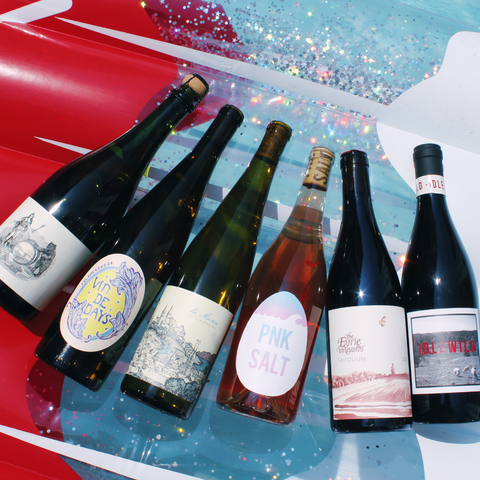Wine, a beloved beverage cherished for its flavors, aromas, and ability to bring people together, has a rich history that spans across continents and centuries. In recent years, there has been a growing interest and awareness about how wine is produced and its impact on the environment and our health. As a result, various terms such as organic, biodynamic, sustainable, and natural winemaking have gained attention. But what do these terms really mean? Let's dive into the world of wine production and uncover the differences between these practices.
Organic Winemaking: Organic winemaking refers to the use of grapes that are grown without the use of synthetic fertilizers, pesticides, herbicides, or genetically modified organisms (GMOs). Organic farmers rely on natural methods to manage pests, diseases, and weeds, such as crop rotation, cover crops, and the use of beneficial insects. Organic winemakers also avoid adding any artificial additives during the winemaking process, including sulfur dioxide, which is a common preservative used in winemaking. Instead, they use naturally occurring processes for fermentation and aging.
Biodynamic Winemaking: Biodynamic winemaking is a holistic approach to farming and winemaking that goes beyond organic practices. It is based on the principles of Austrian philosopher and educator Rudolf Steiner, who believed that the farm is a self-sustaining, interconnected ecosystem. Biodynamic farmers view the vineyard as a living organism and follow a lunar calendar to determine the best times for planting, pruning, and harvesting. They also use biodynamic preparations, which are made from specific herbs, minerals, and animal manure, to enhance the health and vitality of the soil and plants. Biodynamic winemaking also prohibits the use of synthetic chemicals, GMOs, and artificial additives in the vineyard and the winery.

Sustainable Winemaking: Sustainable winemaking is a broader approach that takes into consideration the environmental, social, and economic aspects of wine production. Sustainable winemakers strive to minimize their impact on the environment by using responsible farming practices that conserve water, soil, and biodiversity. They also aim to protect the health and well-being of vineyard workers and local communities. Sustainable wineries may use a combination of organic, biodynamic, and conventional methods, but they prioritize long-term sustainability over short-term gains. Some sustainable winemakers may choose to pursue certifications, such as the Certified Sustainable Winegrowing or the Sustainability in Practice (SIP) Certified, to demonstrate their commitment to sustainability.
Natural Winemaking: Natural winemaking is a minimalist approach to winemaking that seeks to express the truest essence of the grapes and the terroir without any intervention. Natural winemakers use organic or biodynamic grapes and follow a hands-off approach during fermentation, allowing the natural yeasts on the grape skins to ferment the juice. They avoid adding any additives, such as sulfur dioxide or commercial yeast, during fermentation or aging. Natural winemaking is often associated with the use of old winemaking techniques, such as fermenting in clay pots or using wooden barrels, and minimal use of technology in the winery.
In conclusion, while these terms - organic, biodynamic, sustainable, and natural winemaking - share similarities in their commitment to environmentally friendly practices, they have distinct differences in their approaches and philosophies. Organic winemaking focuses on the avoidance of synthetic chemicals in the vineyard and winery, while biodynamic winemaking takes a holistic approach and incorporates spiritual and cosmic elements. Sustainable winemaking considers the broader impact of wine production on the environment, society, and economy, and natural winemaking emphasizes.



